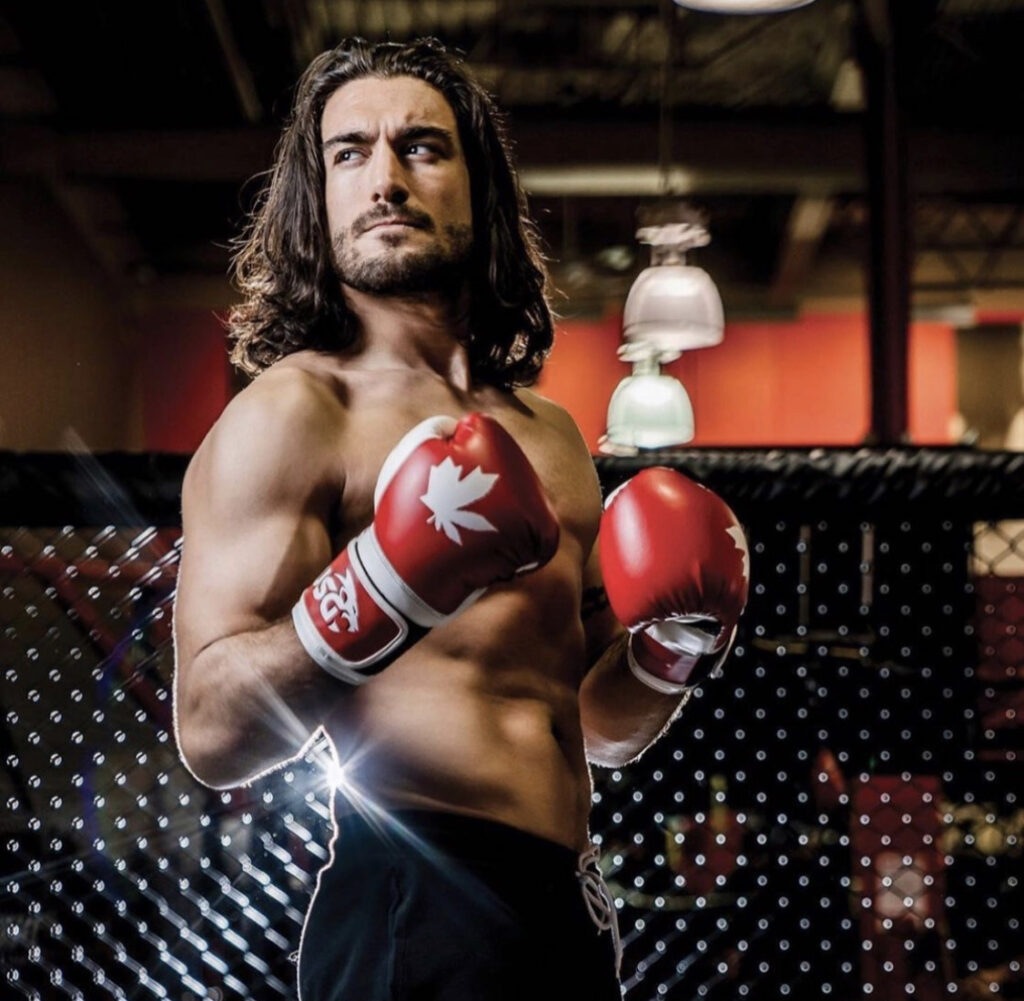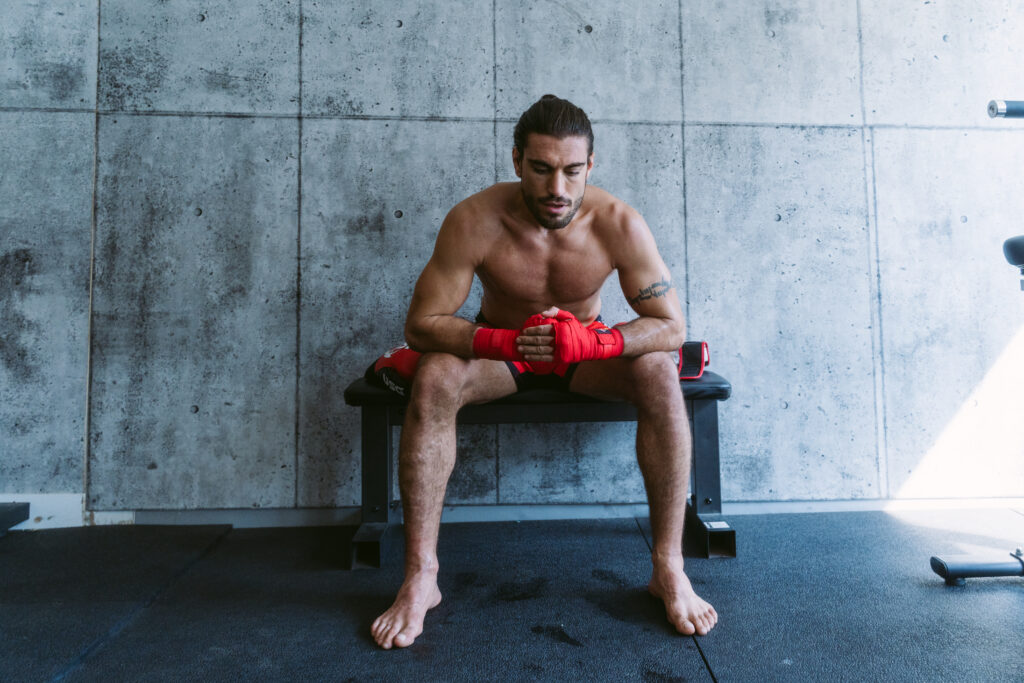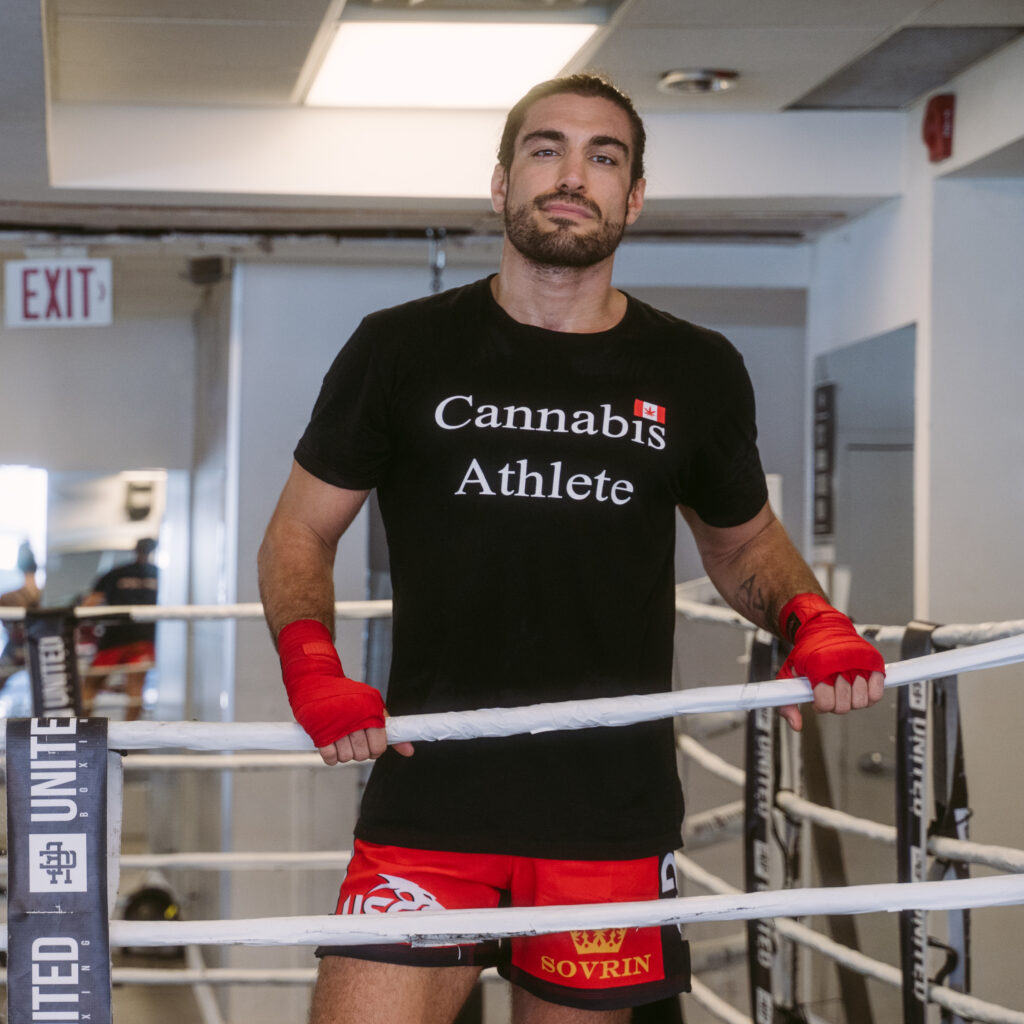
This MMA fighter embraces the cannabis stigma in sports
Mixed martial artist Elias Theodorou recently stepped out of the ring to attend MJBizCon, a conference and exhibition for the cannabis industry in Las Vegas. The Canadian athlete was there on a mission – to promote organizations and brands that strive to break the stigma associated with cannabis use.
As a pioneer in cannabis, people were receptive to his message. Theodorou is the first professional athlete in North America to be permitted to use medicinal cannabis. He has broken new ground in professional sport and says he’s just getting started.
First Canadian to win The Ultimate Fighter
Born and raised in Mississauga, Ontario, Theodorou attended a local high school where he developed his passion for skateboarding. “I jumped off tall buildings until I realized I was scared of heights,” he recalls with a laugh. Since then, he has suffered many injuries, including one on his wrist that was severe enough to require a bone graft.
After high school, he enrolled in college to study advertising. It was at this time that he discovered his passion for mixed martial arts (MMA) and eventually chose this as his career path. He excelled in his sport and, thanks to his Greek heritage and powerful stature, developed into an elite competitor known as “The Spartan”.

In 2014, when he was 25 years old, he became the first Canadian to win The Ultimate Fighter, a reality TV show in which MMA fighters won a contract with the Ultimate Fighting Championship (UFC), a US MMA, compete against each other Förderungsgesellschaft.
Opioids over medicinal cannabis
Theodorou excelled as a middleweight fighter in the UFC, but the competition challenged his body and exacerbated the injuries he sustained while skateboarding years ago. When diagnosed with nerve damage known as bilateral neuropathy, he turned to cannabis to relieve his pain.
He wrote an open letter to the U.S. Anti-Doping Agency (USADA) calling on the organization to allow him to use cannabis to relieve the pain in his wrists and elbows without penalty.
He felt disadvantaged in the ring because of his condition. For Theodorou, cannabis had been shown to be an effective treatment, while other drugs had caused “debilitating side effects”.
The USADA told him he must exhaust all other medical options, including prescription pain medication, before considering making an exception for him.

“Sports officials are trying to raise awareness about the use of narcotics,” he says in retrospect. “If it wasn’t sad, it would be funny that they encouraged me to take opioids.”
USADA officials operate under an outdated system
Traditional drugs didn’t work well, but USADA officials were unmoved. They refused to give him a therapeutic exemption. “I was really frustrated,” recalls Theodorou.
“USADA officials are still working in an outdated system. It was an uphill battle that I ultimately lost. But that setback only made me more determined. I’m known for being adamant in the cage, and I’m like that outside of the cage too. “
While he was thriving in the cage – he was placed in the top 15 among all UFC competitors – he continued to promote the therapeutic value of cannabis. His advocacy ruffled the feathers at the UFC, which fired him in the spring of 2019. Back then he had won eight games and lost only three.
British Columbia grants therapeutic exemption
Nevertheless, Theodorou was not deterred. Seven months later, in December 2019, he entered a match in Windsor, Ontario, in which organizers did not test competitors for cannabis use. He won through technical knock-out and attributed his success to the therapeutic benefits of cannabis.
A month later, the British Columbia Athletic Commission granted him an exemption from the therapeutic use of medicinal cannabis, which allowed him to use it without penalty during training and in preparation for competition.
He was the first professional athlete in North America to receive this exception.

The Commission’s decision was communicated by a panel of independent doctors, which concluded that Theodorou would have serious health problems without using cannabis, that cannabis was not a performance-enhancing drug, and that no other treatment could effectively treat his condition.
It was a huge victory for Theodorou and other medical cannabis advocates.
The start of the COVID-19 pandemic put competition on hold, but after restarting, Theodorou picked up where he left off. In March 2021, he organized a fight in which he defeated former UFC competitor Matt Dwyer in Victoria, BC
Groundbreaking for athletes, country by country
Two months later, the state of Colorado granted Theodorou a medical cannabis exemption, making him the first professional athlete in the United States to receive an exemption. He was excited.
“It was surreal,” he recalls. “It took me years for BC officials to give me this waiver, but it happened very quickly in Colorado. I was speechless. ”At that point, he decided to fight for a“ state by state, country by country ”waiver if necessary.
Theodorou is planning a fight in Denver next month. As he works out plans for it, he continues to train and fight for the acceptance of medical cannabis in professional sports.
He works with Athletes for CARE, an organization promoting research, education, and compassion for athletes’ health issues, and he talks to his peers about cannabis.
“Olympians and others have reached out to me to ask about the benefits of cannabis,” he says. “I’m telling them to speak to their doctors because you need professional supervision when using medical cannabis. I took this step and it changed my life. ”
Randi Druzin
Randi Druzin is a Toronto-based author and journalist. She has worked for several major media outlets, including the National Post and CBC, and has written for dozens of publications including The New York Times, Time Magazine, ESPN The Magazine, and The Globe and Mail.
View article by Randi Druzin
By submitting this form, you subscribe to Leafly news and promotional emails and agree to Leafly’s Terms of Use and Privacy Policy. You can unsubscribe from Leafly email messages at any time.

Post a comment: